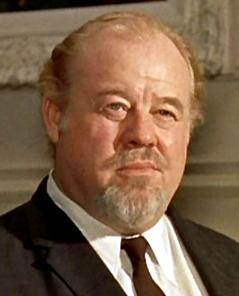A Quote by William Gilmore Simms
The fool is willing to pay for anything but wisdom. No man buys that of which he supposes himself to have an abundance already.
Related Quotes
Wisdom is a condition of consciousness rather than an attitude of mind. Wisdom is that state of being in which an individual finds himself when realization has tinctured and transmuted all attitudes and opinions. A wise man is one who has experienced wisdom, wisdom in this sense being a mystical experience.
Savings represent much more than mere money value. They are the proof that the saver is worth something in himself. Any fool can waste; any fool can muddle; but it takes something more of a man to save and the more he saves the more of a man he makes of himself. Waste and extravagance unsettle a man's mind for every crisis; thrift, which means some form of self-restraint, steadies it.
In the absence of government each man learns to think, to act for himself, without counting on the support of an outside force which, however vigilant one supposes it to be, can never answer all social needs. Man, thus accustomed to seek his well-being only through his own efforts, raises himself in his own opinion as he does in the opinion of others; his soul becomes larger and stronger at the same time.





































